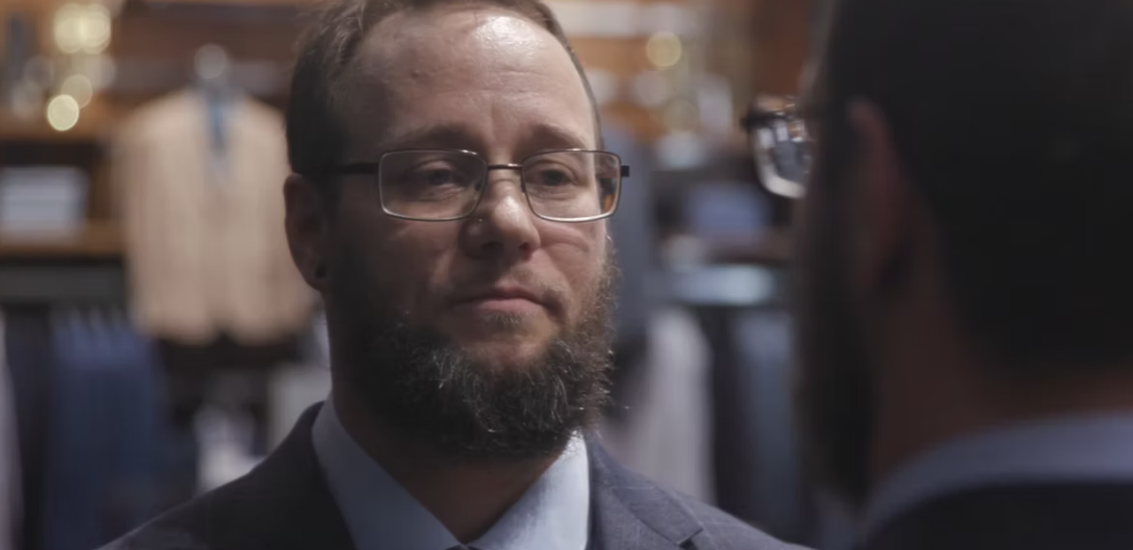NZ Community
Alex – My gender affirmation story

I grew up in the 1970s and 1980s in a small town in California. It was both politically and spiritually conservative.
I didn’t know of any out gay people and only heard of gays and transsexuals in relation to negative descriptions and grossly exaggerated stereotypes.
When I was 34 I started seeing a psychologist about my gender dysphoria. I realised how my upbringing had shaped me, and how I had internalised both homophobia and transphobia.
It took time for me to recognise these feelings, and to better understand the growing divide between the gender I was born with, and who I really was.
Working through this with my psychologist helped me make an important decision: to live outwardly as the gender I was internally.
When I decided to transition, I had to think about how I would do it. I didn’t know what support I would get from ANZ. I knew we had a discrimination policy, but did it cover gender identity?
Would I lose my job? How would it affect my permanent residency in New Zealand?
I worked with what is now called our Talent and Culture team and my managers to come out to my team, to answer their many questions, and help them understand that I wanted to live as a man.

"There are many ways individuals may affirm their gender, and this is what makes it personal for everyone: you get to do it in your own way and in your own time. But whatever people choose, to become their true selves, they need to be supported and have the opportunity to take time away from work."
Alex - ANZ staff member.
Two years later, I decided to start medical transition with hormones.
I realised that I needed to take the first stage of this journey away from the pressures of my role and how my colleagues had known me.
My psychologist certified that I was "not medically fit for work" for 4 to 6 weeks, which allowed me to take leave under ANZ’s wellness policy.
This period gave my colleagues and friends time to get accustomed to the decision I had made, and get used to the idea of who I would be going forward.
Part of my decision to bring my body closer to the person I am has also involved surgeries. To do this I took both annual and sick leave.
While I was fortunate to be able to come out at work - to have the time to do what I needed to become the man I am today - using sick leave to do this created extra stress for me.
My partner and I relied on my income, and I worried that if I took sick leave for my surgeries, and then later got sick, I'd have to choose between coming to work when I was unwell and getting paid, or staying home to recover without pay.
Not everyone goes down a physical transition route. There are many ways individuals may affirm their gender, and this is what makes it personal for everyone: you get to do it in your own way and in your own time.
But whatever people choose, to become their true selves, they need to be supported and have the opportunity to take time away from work.
ANZ's paid gender affirmation leave policy provides just that. It’s a positive step and helps destigmatise the medical treatments some transgender and gender fluid staff decide to have.
The bank has introduced six weeks of paid gender affirmation leave, and up to 12 months’ unpaid leave, for employees in New Zealand and Australia to cover circumstances where staff are taking steps to transition to another gender.
This means we can keep our sick leave for times we are actually sick and importantly it means that transitioning is no longer classified as a 'sickness'.
When we are able to be our authentic selves at work we are more productive and engaged with our teams and colleagues.
I have been with ANZ for almost 21 years and I am not planning to look for another job – at least not in the near future.
I do sometimes worry that if I had to find a new job, a future employer could ask me about the period of time I was "medically unfit" and for an explanation about my long blocks of sick leave.
If that were to happen, I would be in the difficult position of choosing between outing myself as transgender or leaving their questions unanswered.
There are high suicide and murder rates in the LGBTIQAP+ community worldwide, and in some countries people can be jailed - even legally killed - for being who they are.
LGBTIQAP+ people in Australia and New Zealand still experience verbal and physical attacks and even here, we worry about losing our jobs or not getting a new job because of our sexuality and/or our gender identity.
ANZ's new policy gives us the freedom to bring our whole selves to work.
We can be more creative and collaborative when we don't have to hide who we are.
This is a step in the right direction to a more inclusive, accepting and productive workplace and society.
RELATED ARTICLES
NZ Community
'Thank you, ANZ' - Fully-paid parental leave policy gives growing family the best start
NZ Community